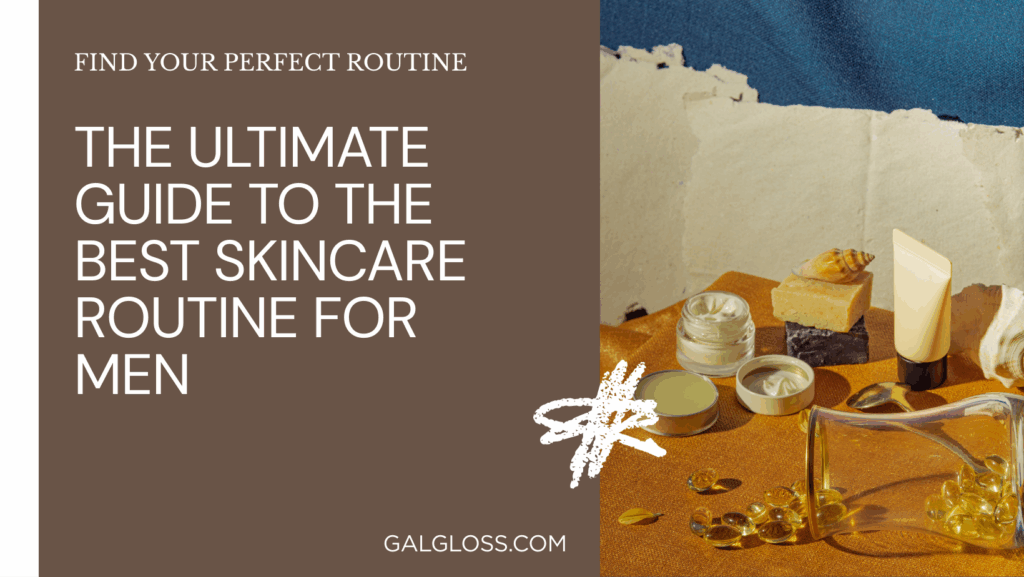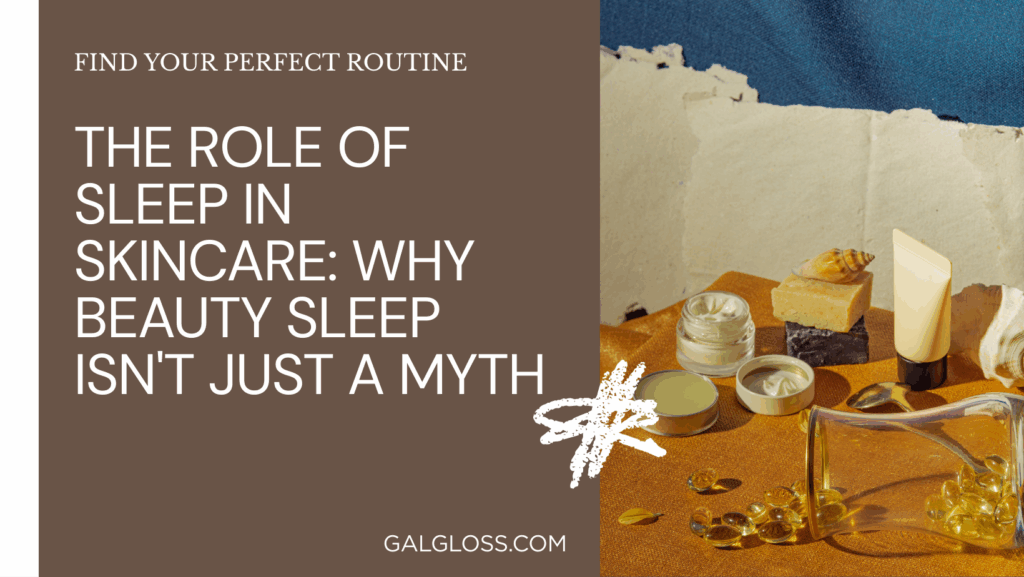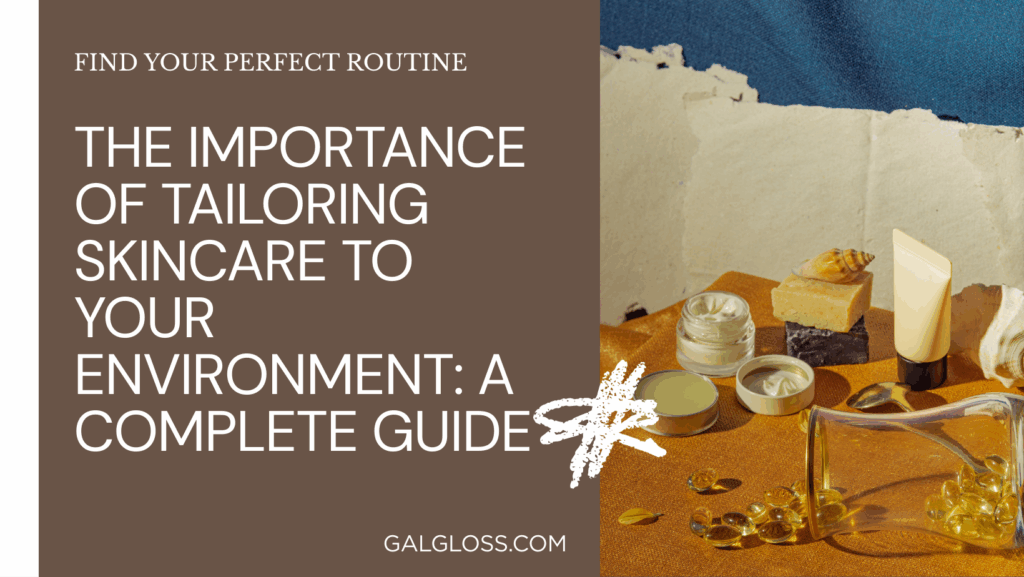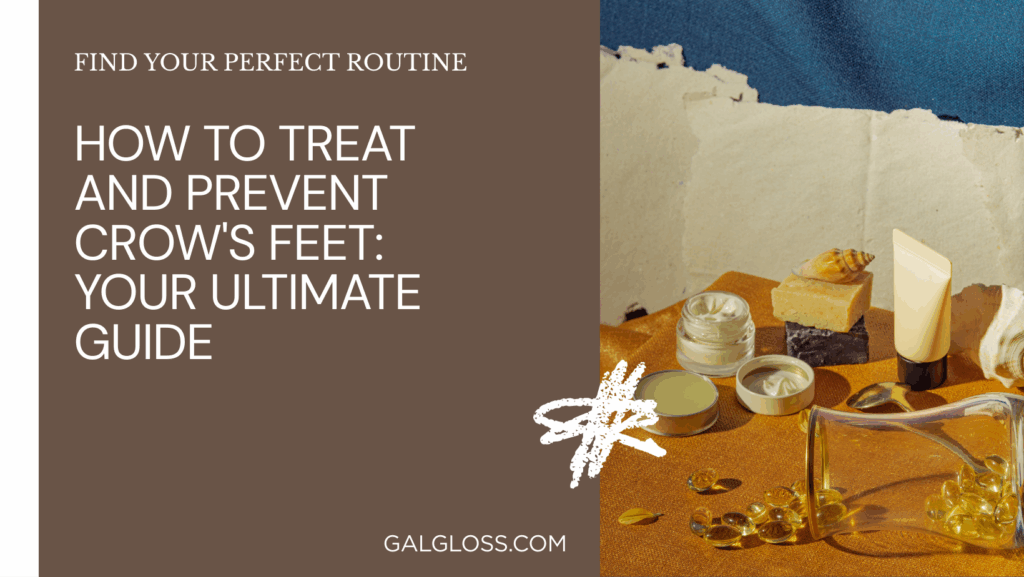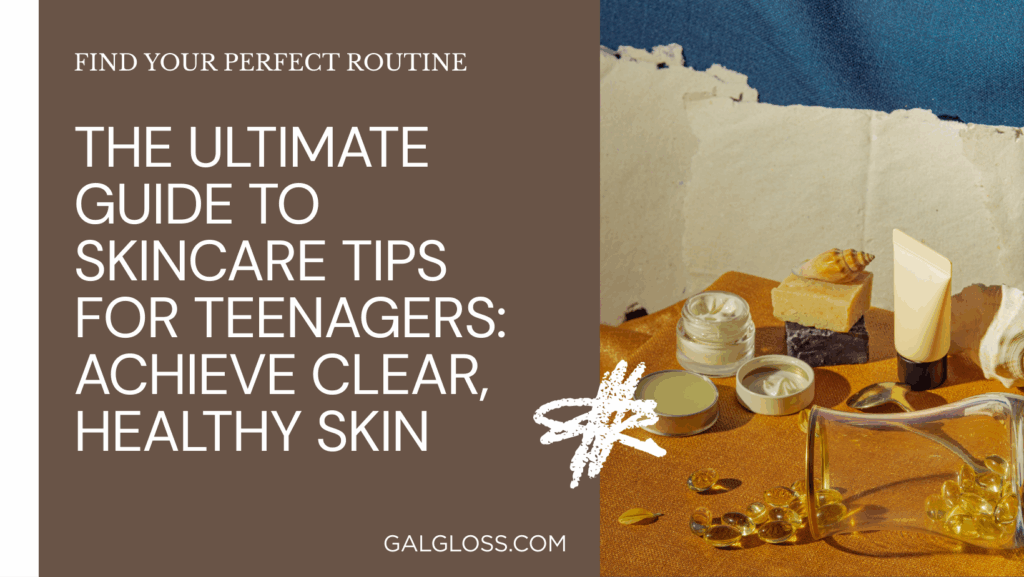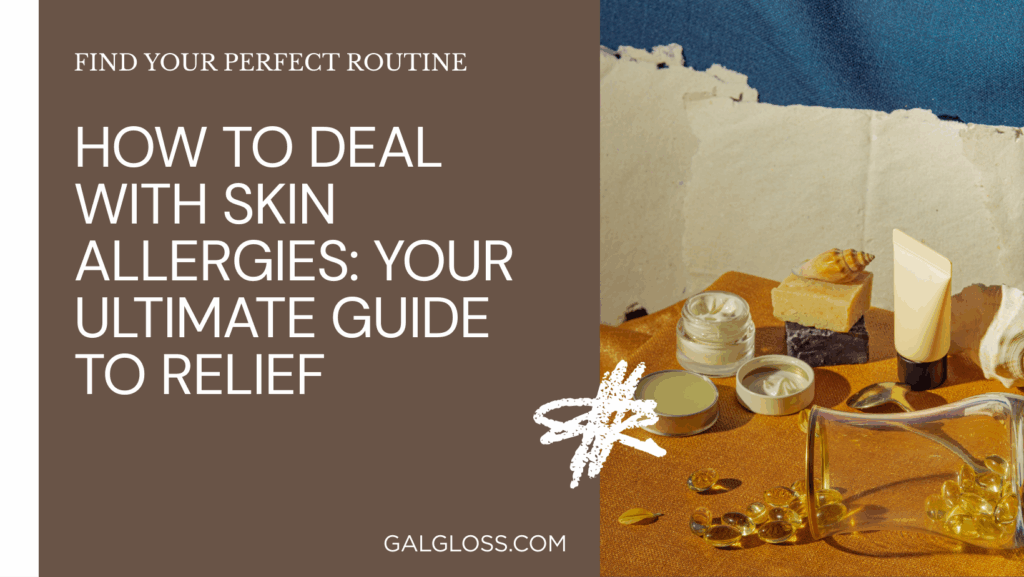Ever looked in the mirror and wondered if that pizza you had last night is showing up on your face? You’re not alone! The connection between what we eat and how our skin looks is more than just an old wives’ tale – it’s backed by science. Let’s dive into the juicy details of how your diet impacts your skin and how you can eat your way to a healthier, more radiant complexion.
The Skin-Diet Connection: More Than Skin Deep
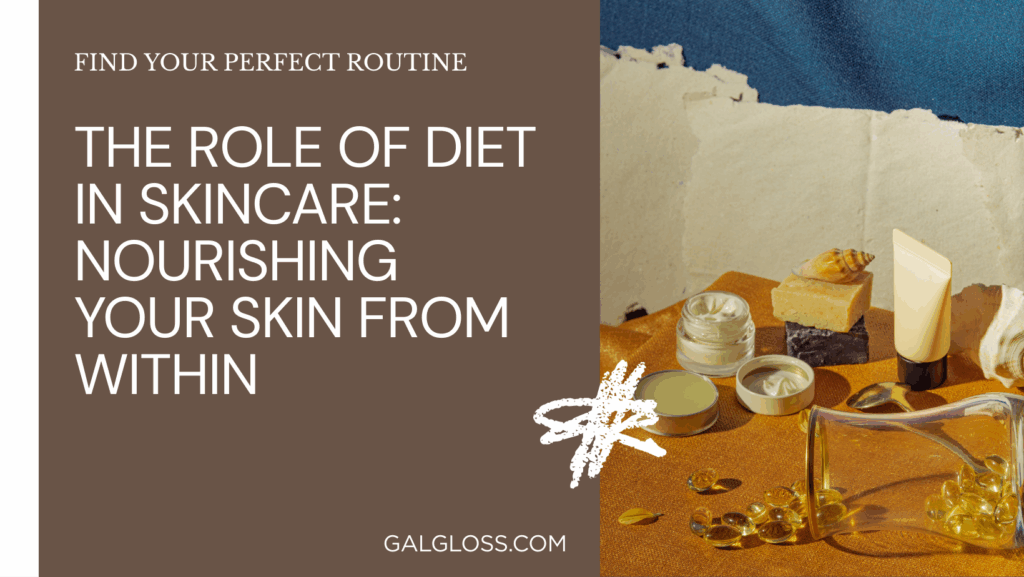
Think of your skin as a mirror reflecting your overall health. What you put on your plate can make a huge difference in what you see in the mirror. But how exactly does this work?
Nutrient Absorption: Your Skin’s Fuel
Your skin is hungry for nutrients, just like the rest of your body. When you eat a balanced diet, your skin gets the fuel it needs to stay healthy, repair itself, and maintain that youthful glow we all crave. Nutrients like vitamins, minerals, and antioxidants play crucial roles in skin cell turnover, collagen production, and protection against environmental damage.
The Gut-Skin Axis: A Two-Way Street
Did you know your gut and skin are besties? This relationship, known as the gut-skin axis, means that what’s happening in your digestive system can show up on your face. A happy gut often equals happy skin!
When your gut is in balance, it helps maintain a strong skin barrier and reduces inflammation. On the flip side, an unhealthy gut can lead to skin issues like acne, eczema, and premature aging. So, taking care of your gut health with probiotics and fiber-rich foods can be a game-changer for your skin.
Key Nutrients for Healthy Skin: Your Skin’s Best Friends
Let’s break down the all-star lineup of nutrients your skin can’t get enough of:
- Vitamins:
- Vitamin A: The anti-aging superhero that promotes cell turnover and reduces fine lines.
- Vitamin C: Collagen’s best buddy, essential for skin elasticity and brightness.
- Vitamin E: The antioxidant shield that protects against free radical damage.
- Vitamin D: The sunshine vitamin that helps with skin cell growth and repair.
- Minerals:
- Zinc: Acne’s worst enemy, it helps regulate oil production and reduce inflammation.
- Selenium: The skin’s protector against oxidative stress and sun damage.
- Omega-3 Fatty Acids: The ultimate skin moisturizer, keeping your skin supple and hydrated from the inside out.
- Antioxidants: These powerful compounds fight free radicals, protecting your skin from premature aging and environmental damage.
Foods That Boost Skin Health: Eat Your Way to Glowing Skin
Ready to give your skin a tasty treat? Here’s what to load up on:
Fruits and Vegetables: A Rainbow of Skin Benefits
Fill your plate with a variety of colorful fruits and veggies. Each color offers different benefits:
- Red (tomatoes, watermelon): Rich in lycopene, which can protect against sun damage.
- Orange (carrots, sweet potatoes): Packed with beta-carotene, a precursor to vitamin A.
- Green (kale, spinach): Loaded with vitamins C and E for skin repair and protection.
- Blue/Purple (berries): High in antioxidants that fight skin-damaging free radicals.
Healthy Fats: Your Skin’s BFFs
Don’t fear fat! Healthy fats are crucial for maintaining skin moisture and flexibility:
- Avocados: Rich in vitamin E and healthy monounsaturated fats.
- Nuts (especially almonds and walnuts): Packed with vitamin E and omega-3 fatty acids.
- Fatty fish (salmon, mackerel): High in omega-3s, which can reduce inflammation and keep skin moisturized.
Lean Proteins: Building Blocks for Skin Repair
Protein is essential for skin repair and the production of collagen and elastin:
- Chicken: A good source of lean protein and zinc.
- Eggs: Contain lutein and zeaxanthin, which protect skin from UV damage.
- Legumes: Packed with protein and fiber, great for gut health and skin.
Foods to Avoid for Better Skin: The Skin Saboteurs
Just as some foods can boost your skin health, others can be total troublemakers. Watch out for:
- Sugar and Refined Carbs: These guys can lead to inflammation and premature aging through a process called glycation. This process damages collagen and elastin, leading to wrinkles and sagging skin.
- Dairy Products: For some people, dairy can be an acne trigger. It might be worth cutting back on dairy for a few weeks to see if your skin improves.
- Processed Foods: Often packed with additives, preservatives, and unhealthy fats that your skin doesn’t love. They can also be high in sodium, which can lead to puffiness and water retention.
- Alcohol: Excessive alcohol consumption can dehydrate your skin and dilate blood vessels, leading to a flushed, puffy appearance.
Hydration and Skin Health: Drink Up!
Water is your skin’s best friend. Proper hydration helps maintain skin elasticity, flush out toxins, and give your skin that dewy, plump look we all love. Aim for at least 8 glasses a day, and don’t forget about hydrating foods like watermelon, cucumber, and leafy greens.
Here’s a quick hydration guide:
- Start your day with a glass of water
- Keep a reusable water bottle with you throughout the day
- Eat water-rich fruits and vegetables
- Herbal teas count towards your daily fluid intake
Special Diets and Their Impact on Skin
Curious about how different diets affect your skin? Let’s take a closer look:
- Mediterranean Diet: This diet is rich in antioxidants, healthy fats, and whole grains. It’s great for skin health due to its anti-inflammatory properties and high content of skin-loving nutrients.
- Plant-Based Diets: Vegan and vegetarian diets can help reduce inflammation and promote clear skin. They’re often high in antioxidants and fiber, which is great for gut health. However, it’s important to ensure you’re getting enough protein and omega-3s.
- Keto Diet: This high-fat, low-carb diet has mixed results for skin. Some people report clearer skin due to reduced sugar intake, while others may experience increased breakouts due to the high fat content.
- Paleo Diet: By eliminating processed foods and focusing on whole foods, the paleo diet can benefit skin health. However, it’s important to ensure you’re getting enough carbohydrates for energy and fiber for gut health.
Remember, the best diet for your skin is one that you can stick to long-term and that makes you feel good both inside and out.
Supplements for Skin Health: A Little Extra Boost
While whole foods should be your go-to, some supplements can give your skin an extra helping hand:
- Collagen Supplements: May improve skin elasticity and hydration. Look for hydrolyzed collagen for better absorption.
- Probiotics: Can help balance your gut-skin axis, potentially improving conditions like acne and eczema.
- Fish Oil: Rich in omega-3s, it can help reduce inflammation and keep skin moisturized.
- Vitamin D: If you’re not getting enough sun exposure, a vitamin D supplement can support skin cell growth and repair.
Always consult with a healthcare professional before starting any new supplement regimen.
The Role of Antioxidants in Skin Protection
Antioxidants are like your skin’s personal bodyguards, fighting off damage from free radicals. These unstable molecules can damage skin cells, leading to premature aging and other skin issues.
Some top antioxidant-rich foods include:
- Berries (blueberries, strawberries, goji berries)
- Dark leafy greens (spinach, kale)
- Green tea
- Dark chocolate (in moderation)
- Nuts and seeds
By incorporating these foods into your diet, you’re giving your skin an extra layer of protection against environmental stressors like pollution and UV radiation.
Balancing Diet with Topical Skincare
Remember, a great diet works hand in hand with a solid skincare routine. Nourish your skin from the inside out and the outside in for best results. Here’s how to create a balanced approach:
- Cleanse: Use a gentle cleanser to remove dirt and excess oil without stripping your skin.
- Exfoliate: Remove dead skin cells to reveal brighter, smoother skin. Don’t overdo it – 1-2 times a week is usually enough.
- Moisturize: Keep your skin hydrated with a moisturizer that suits your skin type.
- Protect: Always use sunscreen to protect against UV damage.
- Eat Well: Follow a balanced diet rich in fruits, vegetables, lean proteins, and healthy fats.
- Stay Hydrated: Drink plenty of water throughout the day.
- Get Enough Sleep: Your skin repairs itself while you sleep, so aim for 7-9 hours a night.
Creating a Skin-Friendly Meal Plan
Ready to eat your way to better skin? Here’s a sample day of skin-loving meals:
- Breakfast: Greek yogurt with berries and nuts (protein, probiotics, antioxidants)
- Lunch: Salmon salad with avocado and leafy greens (omega-3s, healthy fats, vitamins)
- Dinner: Grilled chicken with sweet potato and broccoli (lean protein, beta-carotene, vitamin C)
- Snack: Carrot sticks with hummus (beta-carotene, healthy fats)
Remember to adjust portion sizes based on your individual needs and activity level.
Conclusion: Feeding Your Way to Fabulous Skin
The journey to great skin starts in the kitchen. By fueling your body with nutrient-rich foods and staying hydrated, you’re giving your skin the best chance to shine. Remember, consistency is key – your skin reflects your long-term habits, not just last night’s dessert.
Here are the key takeaways:
- Eat a variety of colorful fruits and vegetables for a range of skin-loving nutrients.
- Don’t shy away from healthy fats – they’re essential for skin health.
- Stay hydrated with water and hydrating foods.
- Limit sugar, processed foods, and excessive dairy if you notice they affect your skin.
- Consider supplements if you’re not getting enough nutrients from your diet alone.
- Remember that diet is just one piece of the puzzle – combine it with a good skincare routine and healthy lifestyle habits.
Your skin is your body’s largest organ, and it deserves the best care possible. By nourishing it from within, you’re not just working towards clearer, more radiant skin – you’re supporting your overall health and well-being.
So, are you ready to make your fork your new favorite skincare tool? Start small, be consistent, and watch as your skin transforms from the inside out. Here’s to glowing skin and a healthier you!
